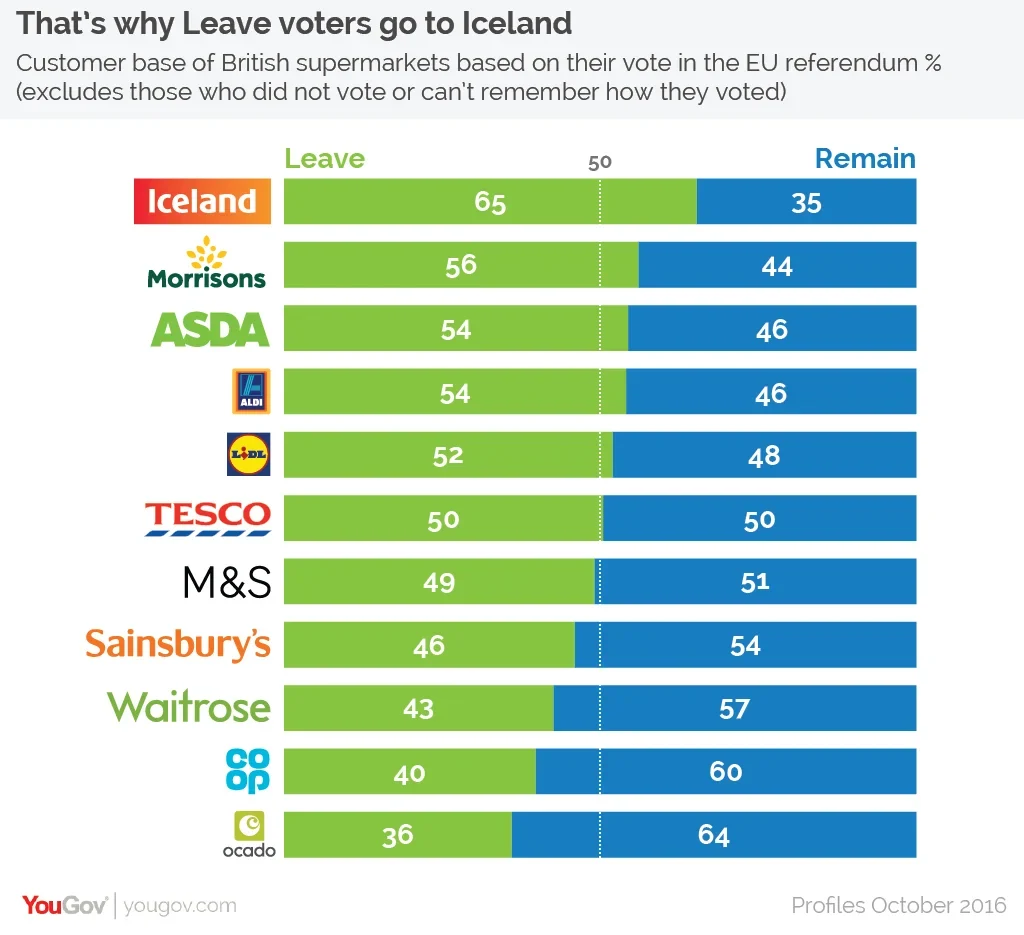New YouGov data shows that customers of the Boston branch of Iceland are likely to be the most Brexit-supporting in the country - with Co-op in Lambeth the most pro-Remain
The short-lived spat between Tesco and Unilever last week – dubbed ‘Marmitegate’ – highlighted the ways in which how someone voted at the EU referendum is dividing the country. Claiming that Unilever price increases were an attempt to punish Brits for voting for Brexit, Conservative MP David Davies even went so far as to declare a personal Marmite boycott in favour of its Australian rival Vegemite. How a person voted during the EU referendum is no longer simply a dividing line between voting groups – it is also one between consumer groups.
YouGov research at the time showed which Unilever brands Leave and Remain voters would miss most. But what about where referendum voters are buying their groceries? If you were in search of Leave voters, or Remain voters, which branch of which supermarket should you head to?
It turns out that Iceland has by far the highest proportion of Leave voters in its customer base, with nearly two thirds of those who voted in the EU referendum (65%) having voted for Brexit. Combining this data with the referendum results means that we can officially proclaim the Iceland in Boston (pictured at the top of this article) to be the country’s Brexit-iest supermarket branch.

On the other end of the spectrum, Ocado’s customers are the most Remain-oriented, with 64% having voted to stay in the EU. The Co-operative is the brick-and-mortar supermarket chain with the highest proportion of Remain voters, at 60%, making the Co-operative branches in Lambeth Britain’s most pro-Remain stores.
Perhaps ironically, given their German origins, the discount supermarket chains Lidl and Aldi have a customer base that tends towards Brexit. With a customer base of 52% Leave voters and 48% Remain voters, Lidl’s customer base is closest to that of the voting public, whilst Aldi’s shoppers are more Eurosceptic still at 54% Leave/46% Remain.
It matters that supermarkets and brands are aware of the political sensibilities of their customers. As YouGov showed during Marmitegate, certain voters are more likely to favour certain brands – it is vital that companies are aware how sensitive their customer base is to availability and pricing issues with particular brands.
In the particular instance of Marmitegate, Tesco were lucky to be able to spread the blame on Marmite, but with months and years of Brexit uncertainty this probably won’t be the last fight over who bears the costs of Brexit. Supermarkets and brands alike will need to be prepared.
Photo: The Local Data Company












